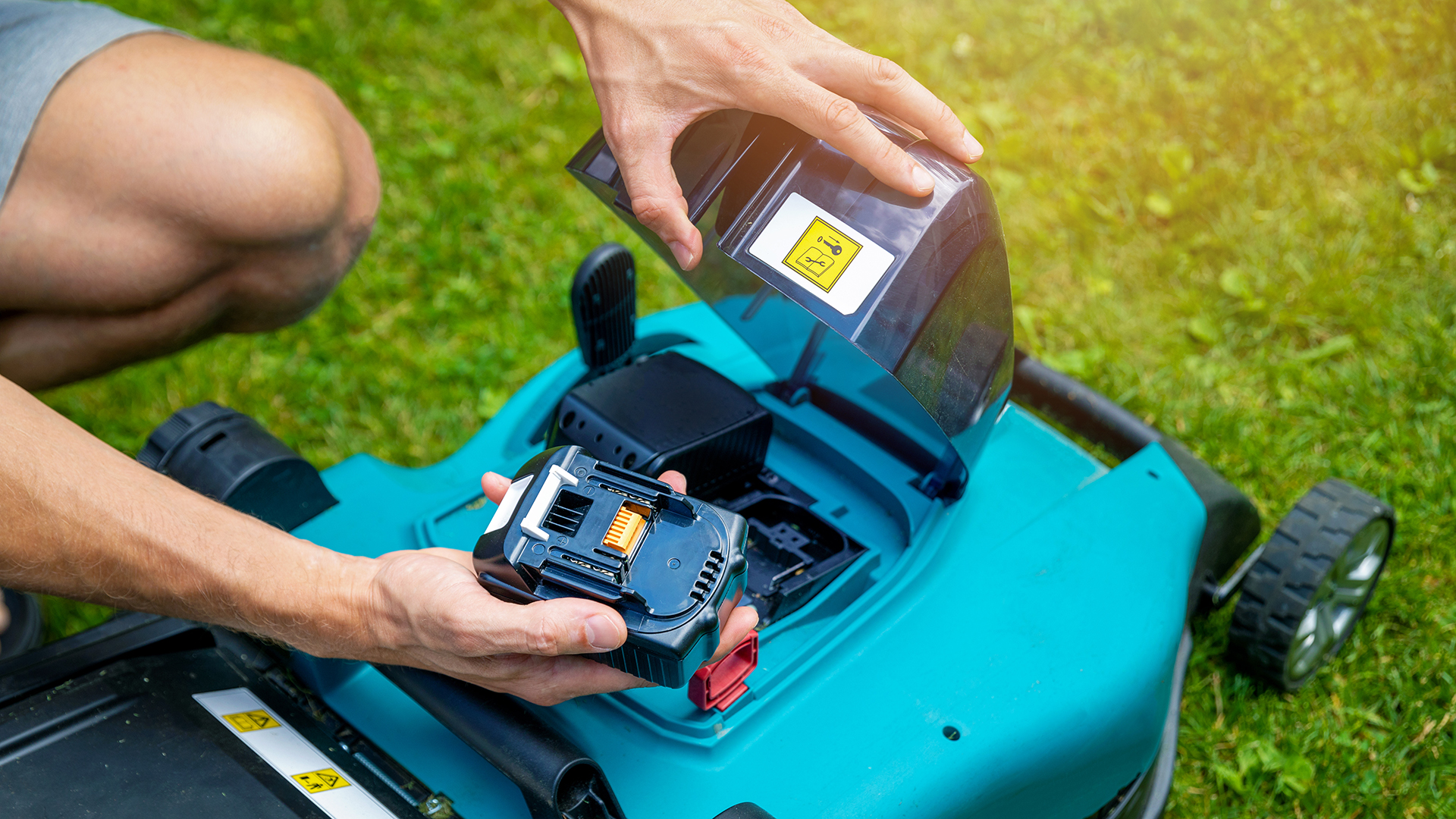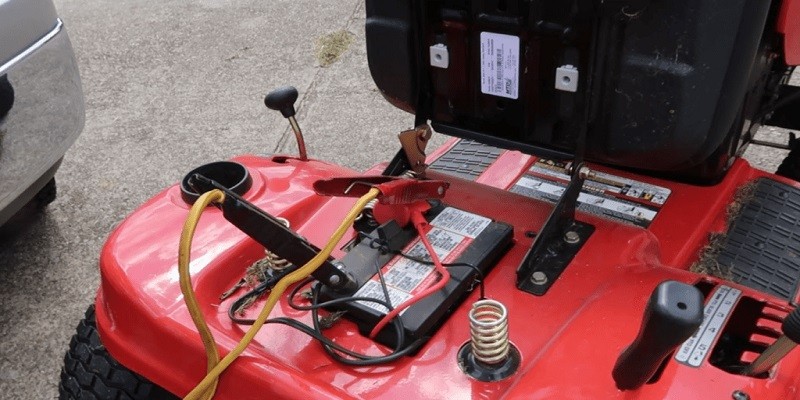Last Updated on January 15, 2025
A lawn mower battery typically lasts for about two to three years. As a crucial component of a lawn mower, the battery powers the engine and provides the necessary energy to start the mower.
The lifespan of a lawn mower battery can vary depending on factors such as frequency of use, maintenance, and climate conditions. Regularly charging the battery and storing it in a cool and dry place can help prolong its life. Additionally, some batteries are designed to have a longer lifespan and can last up to five years.
It is important to monitor the battery’s performance over time and replace it when necessary to ensure optimal functionality of your lawn mower.
Lawn Mower Batteries
Lawn mower batteries have varying lifespans, but on average, they last around 3-5 years. Factors like usage, maintenance, and quality can impact the battery’s longevity. Regular inspections and proper charging techniques can help extend the battery’s life.
Lawn mower batteries play a crucial role in powering your machine and ensuring a smooth mowing experience. Whether you’re a seasoned gardener or a homeowner looking to maintain your lawn, understanding the basics of lawn mower batteries is essential. In this section, we’ll discuss the importance of lawn mower batteries and explore their different components and types.
Importance Of Lawn Mower Batteries
Lawn mower batteries are the lifeblood of your equipment, providing the necessary power to start the engine and keep it running efficiently. Here are some key reasons why understanding lawn mower batteries is important:
- Reliable starting: A dependable battery ensures that your lawn mower starts effortlessly with just a turn of the key or a push of a button. This eliminates the hassle of manual pull-starts and gives you a more convenient mowing experience.
- Consistent performance: A good battery allows your lawn mower to consistently deliver optimal power, ensuring it operates smoothly and efficiently. This means you can tackle your mowing tasks without interruptions or performance issues.
- Longer run time: The lifespan of a lawn mower battery directly impacts how long you can mow before needing to recharge or replace it. By choosing the right battery and maintaining it properly, you can extend the run time and complete larger mowing areas in one session.
- Cost-effectiveness: Utilizing a durable and long-lasting battery for your lawn mower can save you money in the long run. Instead of frequently replacing batteries, investing in a reliable option can reduce downtime and replacement costs.
Components And Types Of Lawn Mower Batteries
Lawn mower batteries come in different types, with each offering its own advantages and considerations. Here are the main components and types of lawn mower batteries to familiarize yourself with:
Lead-acid batteries:
- Lead plates: These batteries comprise lead plates immersed in an electrolyte solution, which produces a chemical reaction that generates electricity.
- Affordable and common: Lead-acid batteries are widely used in lawn mowers due to their affordability and availability.
- Maintenance needs: Regular maintenance, such as checking the water levels and cleaning the terminals, is required to keep lead-acid batteries in optimal condition.
- Limited lifespan: Typically, lead-acid batteries have a shorter lifespan compared to lithium-ion batteries.
Lithium-ion batteries:
- Lightweight and powerful: Lithium-ion batteries provide a reliable power source while being lightweight, making them easy to handle and transport.
- Longer lifespan: These batteries have a longer lifespan compared to lead-acid batteries, reducing the frequency of replacements.
- Minimal maintenance: Unlike lead-acid batteries, lithium-ion batteries don’t require regular maintenance, saving you time and effort.
- Higher upfront cost: Lithium-ion batteries are usually more expensive upfront, but their longer lifespan can compensate for the initial investment.
Understanding the significance of lawn mower batteries and familiarizing yourself with their components and types will help you make informed decisions when it comes to maintaining and replacing them. So, let’s delve deeper into these batteries and find the best fit for your lawn mower.

Credit: www.toptenreviews.com
Factors Affecting The Lifespan Of Lawn Mower Batteries
A lawn mower battery’s lifespan can be influenced by several factors, including usage frequency, maintenance practices, temperature conditions, and the quality of the battery itself. Being aware of these factors can help you determine how long your specific lawn mower battery might last.
Lawn mower batteries play a crucial role in the smooth functioning of your mower. Understanding the factors that affect the lifespan of these batteries can help you make informed decisions and ensure their longevity. Here are the key factors to consider:
Battery Capacity And Voltage:
- Battery capacity: The capacity of a lawn mower battery determines how long it can run before needing a recharge. Higher capacity batteries tend to last longer and provide more power. Opt for a battery with sufficient capacity to meet your specific needs.
- Voltage: The voltage of a battery affects its overall performance. Most lawn mower batteries have a voltage range of 12V to 80V. Higher voltage batteries typically deliver more power and may last longer. Consider the voltage requirements of your mower and select a battery accordingly.
Frequency And Duration Of Use:
- Frequency of use: The more frequently you use your lawn mower, the more strain it puts on the battery. Regular and heavy usage can shorten the battery’s lifespan. Consider how often you need to mow your lawn and choose a battery that can endure the expected usage.
- Duration of use: Prolonged mowing sessions can drain the battery. If you have a large lawn that requires an extended mowing time, ensure your battery can handle it without becoming excessively strained.
Maintenance And Care Tips For Prolonging Battery Life:
- Proper charging: Follow the manufacturer’s instructions for charging the battery. Overcharging or undercharging can adversely affect the battery’s lifespan. Avoid leaving the battery on the charger for extended periods.
- Storage conditions: When your mower is not in use, store the battery in a cool and dry place. Extreme temperature fluctuations can damage the battery. Additionally, ensure the storage area is clean and free from moisture.
- Regular cleaning: Keep the battery and its connections clean and free from debris. This helps maintain optimal electrical contact, preventing power loss and potential damage.
- Check for wear and tear: Routinely inspect the battery for any signs of damage, such as cracks or leakage. If you notice any issues, it’s advisable to replace the battery promptly.
- Professional maintenance: Consider having your lawn mower serviced by a professional. They can check and tune your battery and other components to ensure proper functioning.
By understanding the factors that influence the lifespan of your lawn mower battery and following proper maintenance practices, you can maximize its longevity and enjoy uninterrupted mowing sessions.
Estimating The Average Lifespan Of Lawn Mower Batteries
Lawn mower battery lifespan varies, typically lasting between 2 to 4 years. Several factors affect battery longevity, including usage frequency, maintenance, and environmental conditions. Regular maintenance and proper storage can help extend the life of your lawn mower battery.
Lawn mower batteries play a crucial role in keeping your lawn mower running smoothly. As a responsible lawn owner, it’s essential to understand the average lifespan of these batteries. In this blog post, we will delve into the typical lifespan of different battery types and explore the signs indicating the need for battery replacement.
Additionally, we will discuss the factors that can potentially shorten the battery life. So, let’s jump right in and learn more about this important aspect of maintaining your lawn mower.
Typical Lifespan Of Different Battery Types:
Lead-acid batteries:
- These batteries have been the go-to option for many years. They are cheaper compared to other types but tend to have a shorter lifespan.
- On average, lead-acid batteries can last for approximately 3 to 4 years.
- Regular maintenance and proper charging techniques can help maximize their lifespan.
Lithium-ion batteries:
- Lithium-ion batteries are gaining popularity due to their lightweight design and improved performance.
- These batteries typically last longer than lead-acid batteries, providing an average lifespan of 5 to 7 years.
- They are more expensive upfront, but their extended lifespan makes them a cost-effective option in the long run.
Signs Indicating The Need For Battery Replacement:
Diminished performance:
- If you notice a significant drop in battery performance, such as decreased run time or slower starts, it may be a sign that the battery needs replacement.
Difficulty in charging:
- If your battery no longer charges efficiently or struggles to hold a charge, it could indicate that it has reached the end of its lifespan.
Physical damage:
- Any visible damage, such as leaks, bulges, or cracks on the battery, is a clear sign that it needs immediate replacement.
Factors That Can Shorten Battery Life:
Age:
- Lawn mower batteries, regardless of the type, naturally degrade over time.
- As they age, their capacity to hold a charge diminishes, ultimately shortening their lifespan.
Environmental conditions:
- Extreme temperatures, both hot and cold, can negatively affect batteries.
- Exposure to excessive heat or freezing cold can accelerate the breakdown of battery components and reduce their overall lifespan.
Lack of maintenance:
- Neglecting proper battery maintenance, such as keeping the terminals clean, can lead to corrosion and decreased battery life.
- Regularly inspecting and cleaning the terminals can help extend the lifespan of your battery.
Understanding the average lifespan of lawn mower batteries is crucial for proper maintenance and budgeting. Lead-acid batteries, though more affordable, have a shorter lifespan compared to lithium-ion batteries. Being aware of the signs indicating the need for battery replacement, such as diminished performance or physical damage, can ensure you address any issues promptly.
Finally, factors like age, environmental conditions, and lack of maintenance play a significant role in shortening battery life. By taking these factors into account, you can maximize the lifespan of your lawn mower battery and enjoy uninterrupted mowing sessions.
Frequently Asked Questions For How Long Does A Lawn Mower Battery Last?
How Do I Know If My Mower Needs A New Battery?
To determine if your mower needs a new battery, check for signs like difficulty starting, weak power output, or frequent recharging requirements.
How Often Should You Charge A Lawn Mower Battery?
Charge your lawn mower battery once a month to maintain optimal performance and extend its lifespan.
How Much Does It Cost To Replace A Lawn Mower Battery?
Replacing a lawn mower battery typically costs around $30 to $50.
What Kills The Battery On A Lawn Mower?
Leaving lights on or not charging regularly can drain the battery on a lawn mower.
How Long Does A Typical Lawn Mower Battery Last?
A typical lawn mower battery can last anywhere from 2 to 5 years, depending on usage and maintenance.
Conclusion
To wrap up, the lifespan of a lawn mower battery can vary depending on several factors. Proper maintenance, such as regular recharging and storage during off-seasons, can extend its life. On average, a quality lawn mower battery can last anywhere from 3 to 5 years.
However, extreme weather conditions and heavy usage can shorten its lifespan. It is important to keep an eye on the battery’s performance and consider replacing it when necessary to ensure optimum efficiency while mowing your lawn. Remember to consult the manufacturer’s guidelines for specific recommendations.
By following these tips, you can maximize the longevity of your lawn mower battery and enjoy a well-manicured lawn for years to come. So, don’t forget to keep your battery charged and maintained to make the most of your mowing experience.

